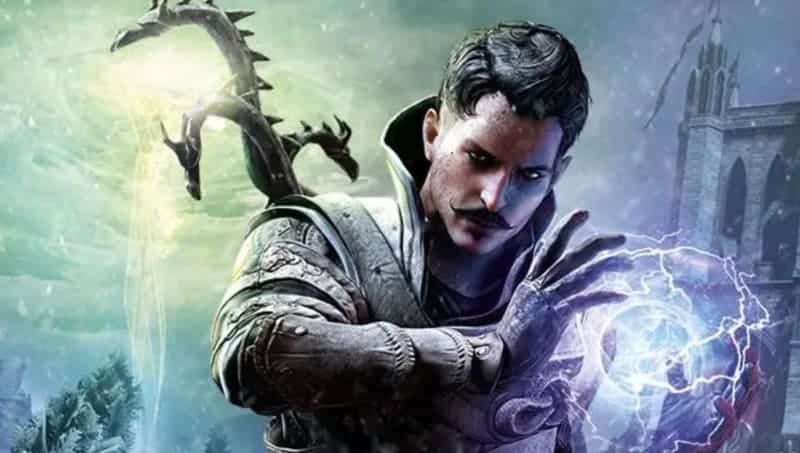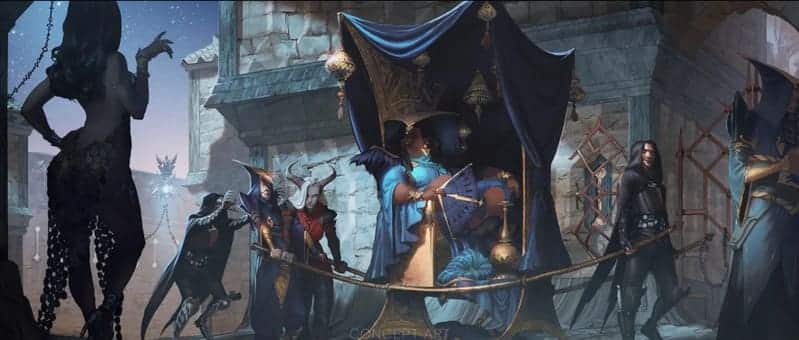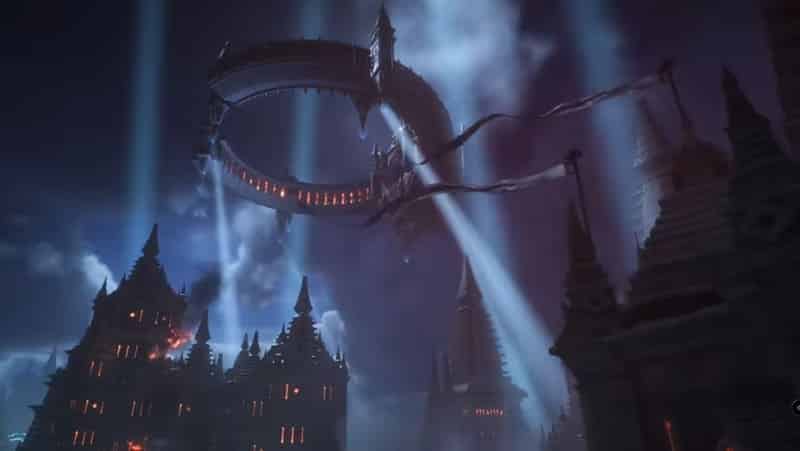The epicenter of the Dragon Age, the Veilguard narrative, the country of Tevinter, has been demonized and vilified throughout the franchise. Always the “boogeyman,” lurking like a monster in the night, any details about the northern Mageocracy have been shadowed in mystery and often insights panic and dread among the populous of Thedas at their mention. A land ruled by oppression and tyranny, overrun with blood magic and the horrific enslavement of the masses, Tevinter’s reputation precedes itself in every aspect -but why?
Mageocracy
Tevinter is a land ruled by Mages in totality. Magic begets powerful influence, as those with magical abilities are seen as the epitome of Tevinter society and govern every aspect of people’s lives. Mages control everything, from social, political, and economic development down to even who has rights and who doesn’t. Oppression and authoritarianism are wielded as weapons, with no citizens of Tevinter left unaffected -even those with some modicum of power. There is always a bigger fish, a more powerful Mage, just waiting to exercise their supremacy over those who dare to reach beyond their station.
Historical Context
To understand even an inkling of Tevinter’s villainous reputation, one needs only look at the recorded history of Thedas. While, with every account, the historical record is riddled with inaccuracies, it is plain to see that Tevinter’s legacy is one of questionable decisions and even more self-righteous indignation. Starting with the early history of the country, wherein they conquered the ailing Elven nation, meticulously destroyed their culture and language, and ultimately enslaved them for centuries to come, to the current timeline, where society is still ruled by the fear of potentially world-ending blood magic and even more powerful mage bloodlines -wherein villains, like Corypheus, hail.
Ruling Classes

In the Dragon Age, the Veilguard (and its series) Tevinter society’s ruling classes are housed in three separate entities: the Chantry, the Magisterium, and the Publicanium. Mages make up all the politicians in Tevinter, with the head of the Chantry, the Archon, ruling over the magisterium and its people as a figurehead appointed by God. Ingratiating oneself with the Archon can and does move mountains, but the bulk of the power still resides in the Imperial Senate -for which the Archon normally sides. Nothing happens without their approval or final decision, and no individual citizen can amass enough power to outmaneuver them.
Ruling with an iron fist, Magisters of the Magisterium generally control every aspect of Tevinter society. Oppressing those of the lower classes as if their very existence threatens the power they wield, the Mages’ sense of superiority is unmatched anywhere else in the world of Thedas. They have no qualms about committing atrocities in the name of the Imperium for the betterment of their people, no matter who they victimize in the process. So long as their action benefits them, they are justified, and no amount of handwringing or explanations to the contrary could convince them otherwise.
Mages within the Publicanium, while duly elected by the people of Tevinter, still toe any line that the Magisterium draws. Wielding significantly less power than their counterparts, they have some say in what laws are drafted and ultimately enforced, though their influence lacks enough power to overrule a decision made by the Magisterium and endeavor to give a voice to the people, where none is normally found. Even though, by all accounts, they are mostly bureaucrats who hold no true power in the grand scheme of things.
Caste System
With the release of Dragon Age the Veilguard, players will finally get a first-hand look at the inner workings of Tevinter society and its caste system. Broken down into six different levels of influence, Tevinter’s society is an exquisite example of tyrannical overreach disguised as the greater good -with Mages at the top and non-mages shackled at the bottom. Their rigid class structure ensures that their governance remains solely affixed within the hands of the elite while suppressing any upward movement for those seen as beneath them.
The most elite level of Tevinter society is comprised of Altus Mages. Believed to be direct descendants of the Dreamers, ancient mages that once could speak directly to the Old Gods in the Fade, an Altus can trace back their family lineage to the founding of the Imperium itself and are the bulk of the individuals within the Imperial Senate. Wealthy, owing vast estates and slaves, the Altus epitomizes the family status, blood purity, magical ability, and influence one needs to hold even a modicum of power and stand alone as an example of what all mages should aspire to be.
Below the rung of political prowess ruled by the Altus sit the Laetan and Praeteri: two subclasses of mage society, wherein their magical abilities manifested later in their family line (the former) or their magical ability and influence lack the greater social standing needed to be fully respected (the latter.) Seen as secondary to the Altus, Laetan Mages can hold positions in the Magisterium. However, their influence and participation are limited to only three seats in the Imperial Senate -while the Praeteri sits firmly on the bottom rung of the Mage hierarchy without any noticeable political influence.
Non-Mages

Non-magical citizens of the Imperium fall under three separate classes: the Soparati, Slaves, and Liberati -with the former making up most of the commoner population, only outpaced in numbers by the slave class. Made up of mostly Elves, slaves are relegated to subservient positions within society and hold no political power whatsoever. While some do earn a wage and are offered perks like freedom of movement and education, most slaves live as third-class citizens. Unable to earn a living wage, marry who they want, or think independently, slaves find themselves indoctrinated into the social hierarchy at an early age and conditioned to accept their reality as a fact, no matter how cruelly their masters may treat them.
Conversely, the Liberati, former slaves now freed by their masters, are seen as even lower on the totem pole than the previous status they once held because they are now unbound to a noble family and, therefore, are unworthy of recognition or respect. While they do have more rights than slaves, many who find themselves in such positions often sell themselves back into slavery to regain a position wherein they are no longer seen as the dregs of society. Perpetuating the cyclical nature of the worst parts of Tevinter society and ensuring that no non-mage citizen of Tevinter could be anything more than what they are right now.
The Chantry
In opposition to the ideological disagreements between northern and southern Thedas, Tevinter’s version of the Chantry heralds a fundamental change from what players have been used to. Unlike the southern Chantry, Tevinter’s version of the religion is ruled by a male priest -known to southerners as the Black Divine. This Divine mirrors the female Divine of places like Orlais, the Free Marches, and Ferelden and rules over the church and its people with a firmer adherence to the Maker and his teachings.
Except in one crucial area: the interpretation of the scripture stating, “Magic exists to serve man, and never to rule over him.” In the south, the priesthood and Chantry scholars took said scripture literally and implemented harsh restrictions on the use of magic and whoever may wield it. Mages in the Tevinter Imperium, however, took a different stance: using that overly quoted scripture to justify their control over the people, not as ruling over them but utilizing magic to help them (albeit sometimes forcefully) to live their own lives righteously.
Hierarchical Effects
Given the societal makeup of the Tevinter Imperium, it is not difficult to see that the players will be forced to come to terms with how their society functions. Rook will need to learn how to maneuver and manage all the machinations utilized by the upper echelons of Tevinter society in hopes of forging enough alliances to bring down Dragon Age the Veilguard’s notorious antagonists: Elgar’nan and Ghilan’nain. What will be interesting to see, however, is how Bioware intends to integrate Tevinter society into the game’s narrative and which previous characters (or previous companions) may make a cameo -offering advice or assistance and maybe even granting a little more closure to the ambiguous end to certain romances.
For More Great Content
Craving top-tier content that covers it all? From electrifying sports highlights and insider entertainment news to expert gaming tips and sharp betting advice, we’ve got you covered. Dive into our curated articles to stay ahead of the game with the latest sports action, uncover the hottest trends in entertainment, and get the lowdown on gaming strategies that could level up your play. Plus, our betting advice will sharpen your edge and boost your chances of winning big. Whether you’re looking to stay updated or gain a competitive edge, our content is your go-to source for all things exciting and relevant. Don’t miss out—explore now and power up your knowledge! Follow us on Twitter/X @TotalApexSports, to stay informed.


